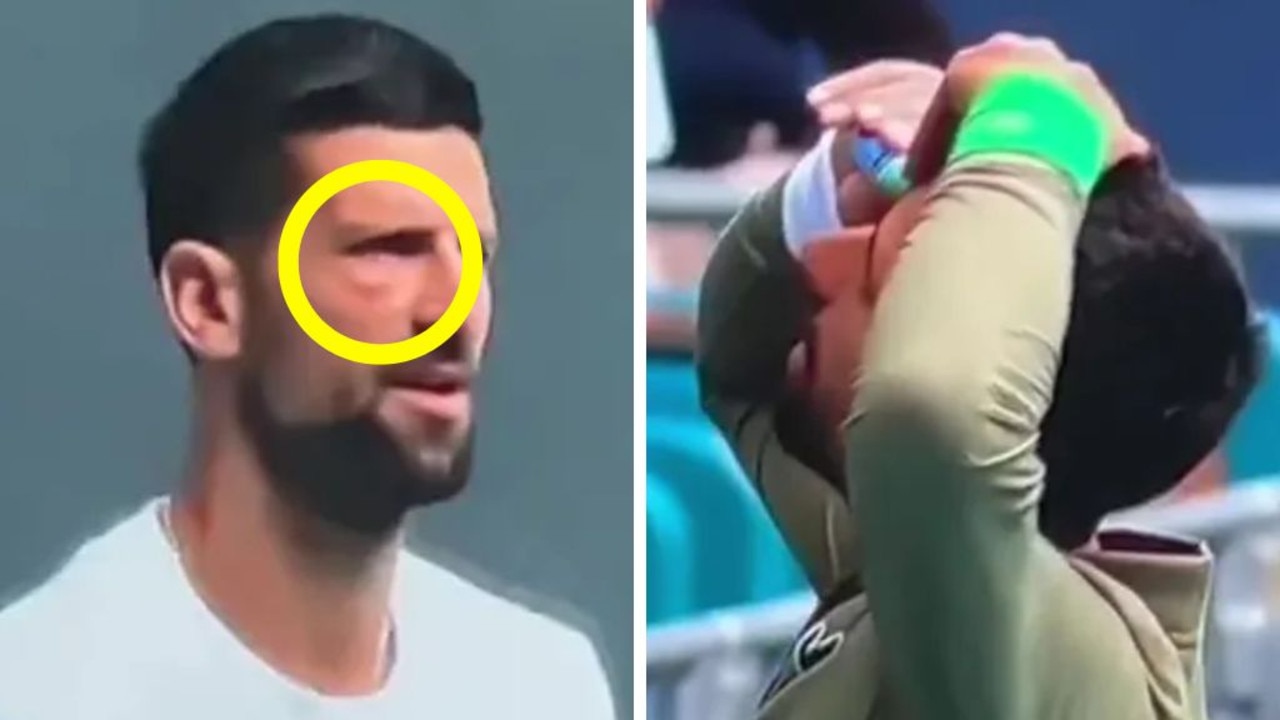How Queenslander Ash Barty turned depression and burn out into her greatest victory
Five years ago Ash Barty walked away from tennis. Like so many young athletes whose childhood is sacrificed, she had come to the end of the road. But it was her decision to quit that saved her, writes MIKE COLMAN.
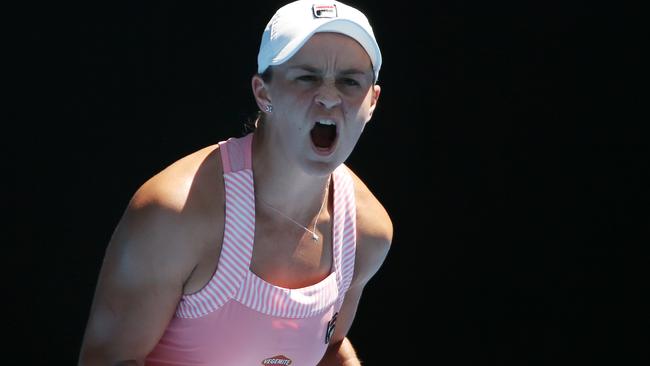
Tennis
Don't miss out on the headlines from Tennis. Followed categories will be added to My News.
A weekend list of Australia’s most influential female athletes had Ash Barty at number eight.
“Another top role model on and off the court,” it read.
There’s no arguing with that. Barty’s performances at Flinders Park over the last week have no doubt had plenty of little girls and probably no shortage of little boys begging their parents to pay for a new racquet and some tennis lessons.
But it is not just for her rocket-like return of serve or forehand volley that Barty should be an example to youngsters.
It is the guts she showed in walking away.
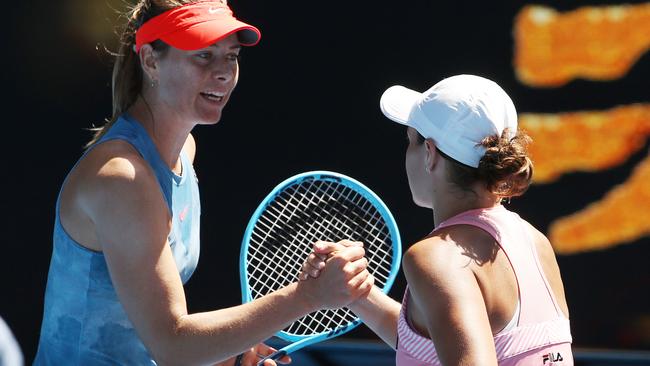
Five years ago Barty was suffering burn out and depression. Like so many other young athletes whose childhood has been sacrificed to the pursuit of sporting glory, she had come to the end of the road.
She has told the story many times. How she felt lonely and confused, not knowing which way to turn. Not wanting to let anyone down.
To many, she appeared to be living the dream: travelling the world, playing a game, making big money.
For Barty, the reality was closer to a nightmare. Like so many sporting prodigies she had never had the chance to be a kid. She had been playing tennis against adults since her early teens, chasing titles and ranking points, living away from her family and pets.
One day she just cracked, as so many do.
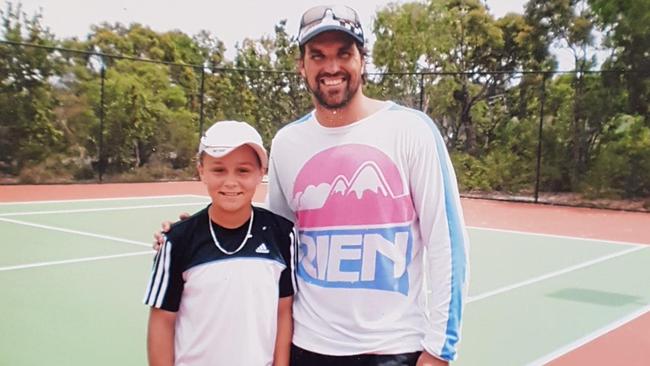
Google the words “tennis and depression” and dozens of articles will fill your computer screen.
Well-known names such as Tomic, Kyrgios and Dokic will feature in the headlines, as will plenty more, less known to Australians but just as prominent in their own countries.
Britain’s Heather Watson whose world fell apart when she couldn’t bounce back quickly after a bout of glandular fever; Canadian Rebecca Marino, former US No.1 Cliff Richey.
Even 21 year-old Naomi Osaka who charmed the world when she beat Serena Williams in the last US Open final told a reporter recently, “You can easily get depressed. Usually, if you play sports, you think that one match or one game is very important, and when you lose it, you think your whole world is over.”
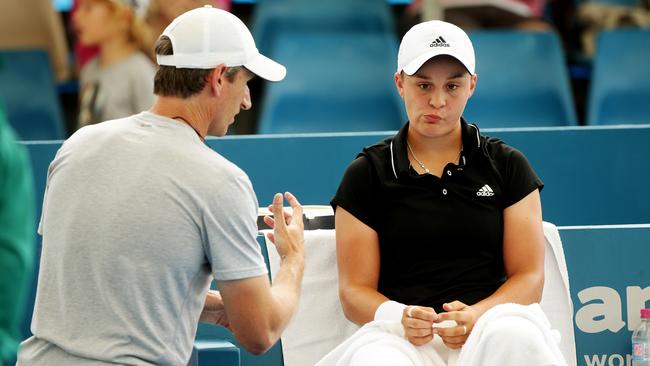
And of course it is not just tennis that can place unbearable strain of expectation on young people not yet equipped to cope.
Announcing the scrapping of the Under 20s Holden Cup competition in 2017, then-chairman of the Australian Rugby League Commission John Grant admitted, “The fact is we take young men in our game away from their homes too early, we put them into intensive competitions, we ask too much of them and quite frankly we’ve had some disastrous outcomes.”
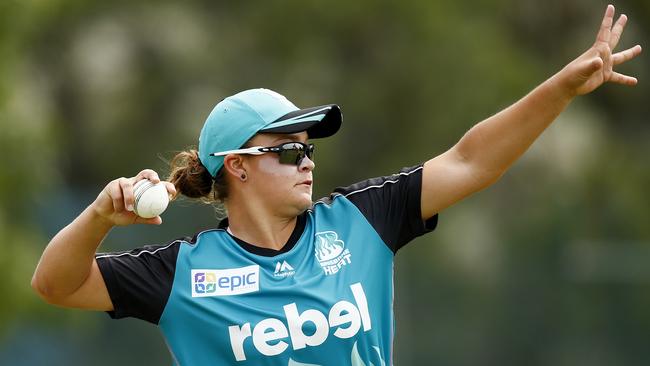
Australians Moises Henriques and Will Pucovski are just the latest in an alarmingly long list of cricketers to suffer mental health issues.
Pucovski told of breaking down in the middle of the greatest innings of his career, 243 in a Shield match against Western Australia last October.
“It was one of those things where what it looked like from the outside wasn’t quite matching up with what it was on the inside … I was more confused than at any other time in my life,” he said in words strikingly close to those used by Barty in a recent interview in which she told of winning a match in Holland and crying all the way through it.
It was soon after that when Barty took the bravest and best decision of her life. She did what athletes are taught to never do: she quit.
She stopped playing tennis, admitted she had a problem and sought help. She went fishing, took up golf and cricket. Had fun in a team environment; became a kid again before coming back calmer, happier, better than ever.
That is the most important message that role model Ash Barty is giving to young people right now.
Sometimes it is not the matches you play that are the most important. It is the ones you don’t.
Experience the best of international tennis LIVE. SIGN UP NOW!

